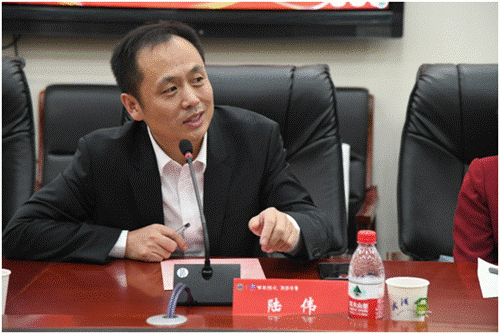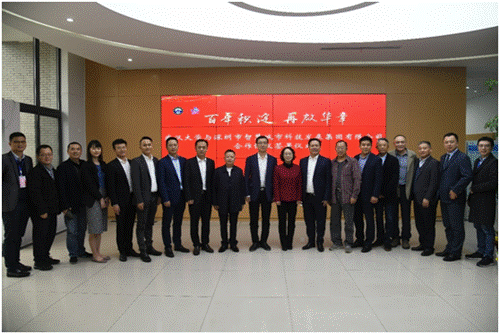On October 17, the signing ceremony of strategic cooperation between Shenzhen Smart City Science and Technology Development Group Co., Ltd. and Wuhan University was held at the School of Information Management.
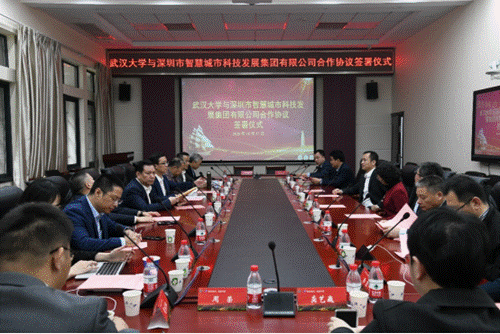
People attended the ceremony were as followings:
Haibin Peng, Deputy Director of the Standing Committee of Shenzhen Municipal People’s Congress and Member of the Party Leadership Group,
Xiuming He, CPC Deputy Secretary and Deputy Director of the Hunan Provincial Department of Science and Technology,
Ping Wu, Member of the Standing Committee of the Party committee and Vice President of Wuhan University,
Xiquan Yu, CPC Secretary and Chairman of Shenzhen Smart City Science and Technology Development Group Co., Ltd.,
Keke Zhang, former full-time Vice Chairman of Shenzhen Association for Science and Technology,
Hao Long, Deputy General Manager of Shenzhen Smart City Science and Technology Development Group Co., Ltd.,
Qing Fang, Dean of the School of Humanities and Social Sciences of Wuhan University,
Xingguo Liu, CPC Secretary of the School of Resource and Environmental Sciences, Wuhan University,
Wei Lu, Dean of the School of Information Management, Wuhan University,
Gang Li, Director of Center for Studies of Information Resources, Wuhan University,
Jicheng Liu, Vice President of the Information Management Branch of Shenzhen Alumni Association of Wuhan University,
Rong Zhou, Secretary-General of the Information Management Branch of Shenzhen Alumni Association of Wuhan University.
Jiang Wu, Associate Dean of the School of Information Management, Wuhan University, presided over the ceremony.
Xiquan Yu said that Wuhan University has long been concerned about the major needs of the country and supported the security work of national big data strategic information resource. The main task of Shenzhen Smart City Science and Technology Development Group Co., Ltd. was to promote the construction of smart city in Shenzhen, carry out construction and management work around the whole life cycle of data, explore data-driven urban governance and urban services, and build a full scene smart city. He hoped that on the basis of existing cooperation, Shenzhen Smart City Science and Technology Development Group Co., Ltd. and Wuhan University would carry out research and development of key technology oriented to industries in the fields of big data, artificial intelligence, cartography and information engineering, do a good job in the construction of industry-university-research cooperation, industry incubation and post-doctoral workstation, cultivate high-level talents, and create a new paradigm and benchmark for industry and university cooperation.
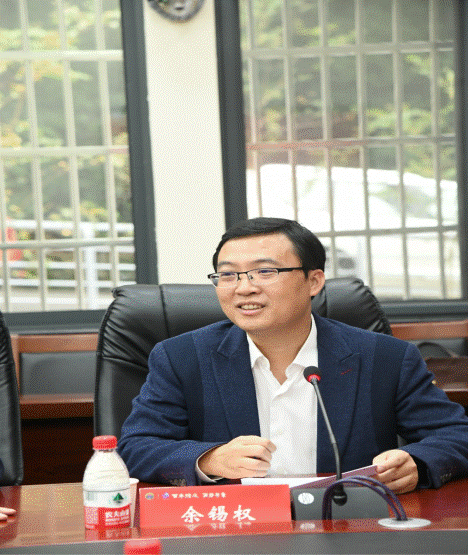
Ping Wu pointed out that Shenzhen is the forefront of China's reform and opening up, and Shenzhen Smart City Science and Technology Development Group Co., Ltd. is a pragmatic, efficient and powerful company. Library, Information and Archival Management of Wuhan University is a world-class discipline. This cooperation between company and university was a kind of strong cooperation and a good beginning for both sides to carry out cooperation on the basis of common will. Wuhan University has cooperated with Shenzhen Smart City Science and Technology Development Group Co., Ltd. in surveying, mapping and remote sensing, South to North Water Diversion and big data research. It was hoped that on the basis of today's agreement, a number of cooperation projects could be implemented one by one, making scientific research practice and urban development more intelligent.
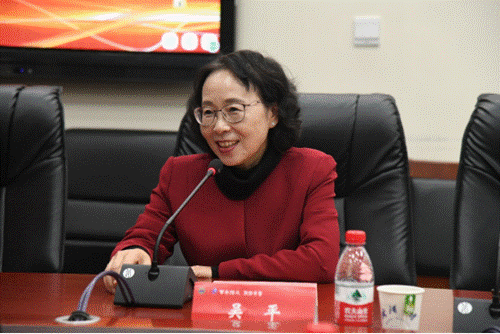
Wei Lu and Hao Long signed the cooperation agreement on behalf of both sides. Haibin Peng, Xiuming He, Ping Wu, Xiquan Yu, Keke Zhang, Qing Fang and Xingguo Liu witnessed the signing ceremony.
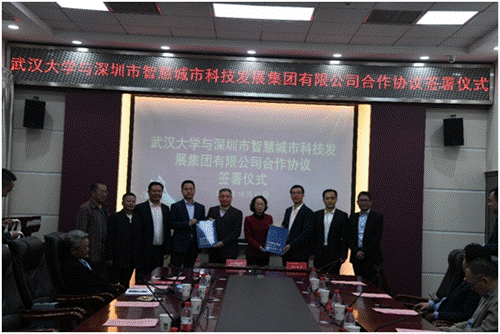
Subsequently, the two sides had a discussion. Haibin Peng said that the future of the discipline lied in how to continue to promote and lead in the new trend of the times. As a window city of the country, Shenzhen is at the forefront of scientific and technological innovation and can lead our future in new technology application scenarios and application prospects. Shenzhen Smart City Science and Technology Development Group Co., Ltd. was the first company in China to build smart city infrastructure, which has shouldered a major mission. He hoped that in this strong alliance, more abundant practical achievements and services could be created on the new platform.
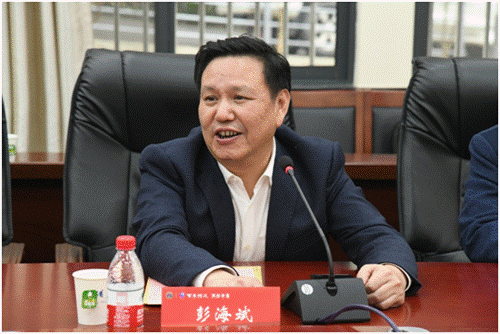
Xiuming He pointed out that the knowledge learned in university would eventually be transformed into thinking ability, which had a profound impact on decision-making in work. Smart city itself was a very broad and fragmented concept, such as public transport, water services, and etc. In terms of form, the cooperation between Wuhan University and Shenzhen Smart City Science and Technology Development Group Co., Ltd. was the cooperation between university and enterprise, but at a deeper level was the link cooperation innovation of industry-university-research, which was in line with the main task "innovation" of the 14th Five-year Plan.
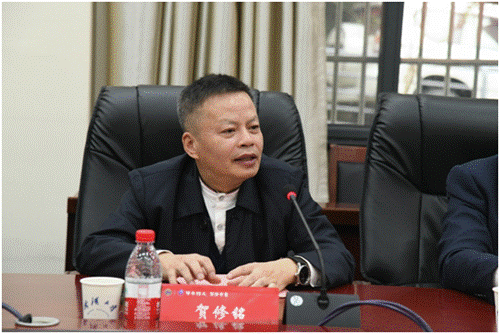
Keke Zhang said that the cooperation between Wuhan University and Shenzhen Smart City Science and Technology Development Group Co., Ltd. was a new driving form, which could further strengthen teachers and students' awareness of market demand. He suggested that, firstly, university need to gather more creative teachers to "go out", improve relevant mechanisms, and encourage teachers to look outside. At the same time, we should grasp the trend of science and technology development through the way of interdisciplinary. Secondly, university should "open up" more in the way of personnel training, actively seek cooperation projects and cooperation direction, and realize the organic combination of application orientation, talent cultivation and market demand.
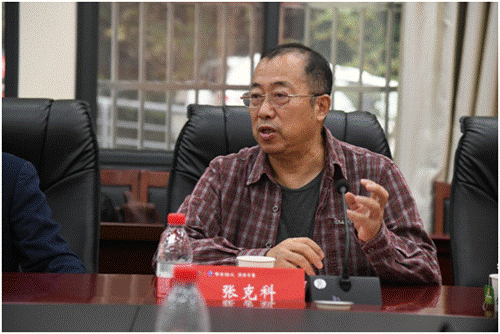
Gang Li said that the development of the school should not be limited to a narrow scope. Under the background of the new era, how to continue to maintain the influence and vitality of the discipline was worth pondering. He briefly reviewed several problems solved in scientific research projects, saying that these problems were actually the core issues of smart city, such as perception, computing, governance, and etc. Perception mainly involved issues related to the Internet of Things, such as the processing of cross device flow data. The important thing was to solve the problem with the information of Internet of Things and database information. In addition, there were also the calculation and understanding of the working condition environment and the risk calculation of the site, which basically covered all the problems to be solved in the smart city.
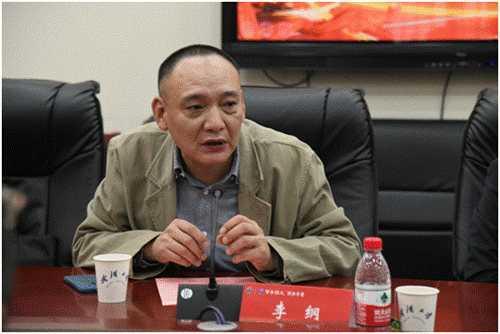
Xingguo Liu believed that, on the basis of the previous cooperation between the two sides, we should promote comprehensive and deepening cooperation in relevant fields. The School of Resource and Environmental Sciences has had cooperation with Shenzhen in the fields of Geographic Information Science and land resource management, and environmental governance and water pollution control would be the key words of Shenzhen's new round of reform and opening up. He said it was important to focus on how to combine the research direction of the school with the needs of the country, local and society, such as big data during the epidemic and personnel screening and control.
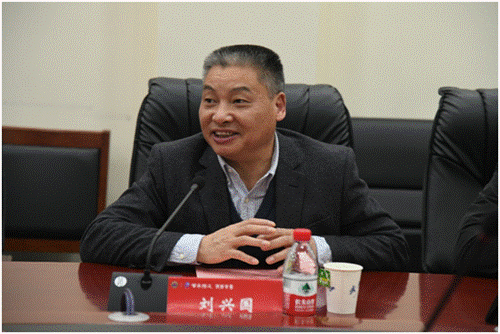
Wei Lu said that some scientific research projects of the school have more cooperation with Internet enterprises, but cooperation from the strategic level was a very rare opportunity for the school, and the university has given great support to the school. He said that today was the beginning of cooperation and hoped to achieve more lasting and in-depth cooperation on the basis of mutual benefit and win-win development.
